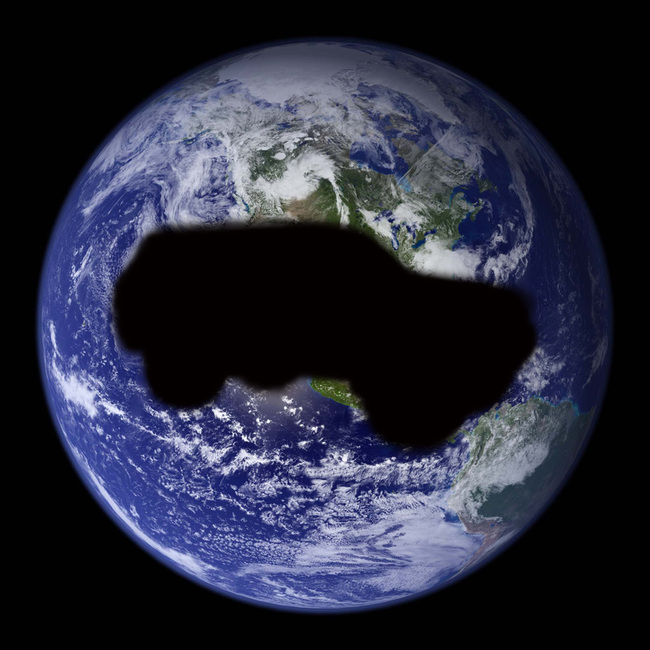|
A question that has been put to us on a several occasions is how “green” our adventure is, after all we will be covering thousands of miles in what has been described as a “gas guzzler”. We undertook some pretty complicated sums to compare our carbon footprint if living in Guernsey for 800 days compared to 800 days spent driving around the world.
A carbon footprint is a measure of the impact our activities have on the environment, and in particular climate change. It relates to the amount of greenhouse gases (mainly Carbon Dioxide, CO2 produced in our day-to-day lives through burning fossil fuels for electricity, heating, refrigeration, transportation etc. The average carbon footprint for a person in the UK is 70kg CO2 per day. Need a refresher on Carbon production, the greenhouse effect and climate change? Check out this clip. We calculated our Guernsey carbon footprint using an online ‘carbon calculator’- answering a series of questions about daily activities to produce an estimate of our individual CO2 production. This gave us a figure of 127.66kg CO2 per day, for both of us combined. This is based on sharing an oil and electricity run detached house with 2 other people in Guernsey, driving a car to work and back every day, taking 2-3 long-haul flights each year and eating local and imported food. On to the CO2 production of adventuring... Diesel cars generally have a better fuel economy than equivalent gasoline engines and produce less greenhouse gas emission. Their greater economy is due to the higher energy per-litre content of diesel fuel and the intrinsic efficiency of the diesel engine. A diesel-powered vehicle emits 10-20% less greenhouse gas than comparable gasoline vehicles. Whilst adventuring we will be self-sufficient with the majority of our energy coming from the diesel engine (charging a 12V electrical system to power lights, laptop, fridge etc). In addition to this we will have a multi-fuel stove and the occasional wood fire. The majority of our food will be sourced locally. Now for the sums... creating a path of our rough route in Google Earth we estimate an approximate distance (excluding Africa) of 103,000 km. The approximate distance of crossing the Pacific Ocean by ship is 12,100km so our total diesel-powered mileage is 90,900 km. We calculated the carbon cost of our shipping distance but concluded it would have a negligible effect on the total figures. The weight of our vehicle is only 0.0022% of the average weight of a cargo ship, therefore producing only 146.3kg CO2 for the entire Pacific crossing of 4980 Nautical Miles. Bee-Bee the adventuremobile holds 65 litres of diesel and does 402km per tank, so we use 0.162 litres per kilometre. Multiply this fuel usage by our total distance and that’s 14,726 litres for the entire journey. Still with us?... good. Each litre of diesel produces 2.66 kg CO2, so in total our travels will produce 39,171 kg CO2. Divide this by 800 for the number of days travelling and we get 48.96kg CO2 per day, for both of us combined. In conclusion, we will produce 62% LESS CO2 per day, proving that our planned adventuring lifestyle is significantly more sustainable than living in Guernsey/UK. Emma
5 Comments
Chris Guest
31/8/2011 12:52:41 pm
Hmmm, I'm afraid I doubt the sums. Cars just don't consume fuel consistently and emit vastly different amount sof CO2 depending on speed, weather, traffic, slope gradient, wind, tuning, load and loads of other things.
Reply
Andy Smith
23/9/2011 09:19:36 pm
Hi Chris
Reply
17/10/2011 02:35:06 pm
Hi guys!
Reply
1/4/2012 06:14:23 pm
I have read the article,and I want to say thanks to you for exceptional information. You have provided deep and easily understandable knowledge to us.
Reply
Guys,
Reply
Your comment will be posted after it is approved.
Leave a Reply. |
Archives
July 2020
Categories
All
|
Proudly powered by Weebly


 RSS Feed
RSS Feed